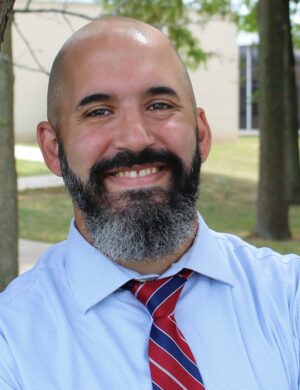Less than two years into 10-year Strategic Roadmap, College of Health and Human Sciences is meeting milestones and more
Written By: Rebecca Hoffa, rhoffa@purdue.edu

Developing a strategic plan to chart the future of the Purdue University College of Health and Human Sciences (HHS) was an early mission of HHS Dean Marion K. Underwood when she arrived at Purdue in 2018. She brought her expertise in strategic planning from the University of Texas at Dallas to form a collaborative strategic planning process and, in fall 2019, led the development of the 10-year HHS Strategic Roadmap.
Seven working groups including 61 faculty members, 19 staff members, six students and one alumna provided ideas for how to advance key initiatives over the course of the year-long planning process. Throughout the process, drafts of the roadmap where shared with HHS faculty, staff, students and alumni, and their input was solicited via forums and online surveys.

HHS Dean Marion K. Underwood
Paving the way
Published in November 2020, the roadmap provides a framework for the goals and ambitions of Purdue’s newest college (established in 2010) over the next decade.
“I called it a ‘roadmap’ because I did not want it to be too long. I wanted it to be a guide to our future, but one that we would consult frequently to guide our efforts to build on our excellence,” Underwood explained. “I thought it would help us move the college to the next chapter. Bringing this college together was a tremendous accomplishment, because it required uniting programs with very different cultures and goals. HHS leaders did outstanding work in building the new college, providing an excellent environment in which diverse scholars can thrive and creating an extremely positive climate. As the college matures, the time seems right to clarify our identity and to build on our excellence.”
Moving forward

Tom Berndt, senior associate dean for academic affairs and administration
In addition to the signature areas, which provide a backbone for the plan, the HHS Strategic Roadmap is comprised of seven strategic themes, which work together to provide actionable steps to move the college forward, allowing HHS to offer greater knowledge and engagement across Indiana, the nation and the world.
“I think HHS, and the University as a whole, is aiming for continued improvement of undergraduate education through transformation. I think HHS faculty have been leaders in this area,” said Tom Berndt, senior associate dean for academic affairs and administration.
Berndt and Sandra Sydnor, associate professor of hospitality and tourism management, served as co-chairs of the “Enrich the Residential Student Experience” theme working group. The theme focuses on finding ways to keep students engaged as the college continues to navigate the ongoing pandemic. Initiatives include continuing to advance HHS’ high-quality, hands-on educational programs through the hire of 36 new faculty members for fall 2022 and designing a student collaboration space in Stone Hall that will emphasize diversity, equity and inclusion (DEI).
“Some of the ways our subgroup planned for enriching the residential student experience was to invite and embrace diversity,” said Sydnor. “We now have students on HHS DEI committees and we’ve added Boiler Inclusion videos to our HHS DEI webpage to help students feel empowered to have what could be unfamiliar and challenging conversations about diversity.”

Sandra Sydnor, associate professor of hospitality and tourism managementPhoto provided
Berndt noted that developing flexible learning environments and providing even more experiential learning opportunities continues to be a top priority of this section of the roadmap. Berndt anticipates participation in faculty development programs, such as IMPACT training, as well as collaboration with the new Office of Experiential Education will help HHS programs continue to thrive in on-campus, hybrid and online environments.
“As we move out of the pandemic, I am certain we will be continuing with our faculty to look at changing courses and changing curricula to promote the kind of active learning that often goes with hybrid instruction,” Berndt said. “We will be thoughtfully choosing either online instruction or in-person instruction to give students the best education we can.”
The “Create Online Offerings” section of the roadmap has also been an important component of the roadmap to increase opportunities for individuals who may not be able to make it to campus. Since the development of the roadmap, HHS has launched an online Master of Health Administration degree as well as online certificates in pain management, integrative behavioral health, lifestyle medicine and financial planning. The college also has introduced two online programs for global education.
Finding the focus
An important component of the roadmap was always to enhance diversity, equity and inclusion within the college. However, in the wake of the death of George Floyd in 2020, the plan shifted to place DEI at the forefront, moving it from third on the list to first to prioritize it among the seven themes while also incorporating it into all the others.
In focusing on DEI, the college has launched the HHS DEI Science Consortium, which aims to enhance the science behind diversity, equity and inclusion; hired an assistant director for DEI; introduced a Critical Conversations series in the college to promote inclusion among faculty and staff; developed additional undergraduate scholarships focused on diversity; and brainstormed initiatives to recruit diverse students.
While diversity, equity and inclusion and online and residential learning opportunities have taken the forefront, the roadmap also places considerable focus on its remaining four themes: “Attract and Retain the Best Talent”; “Advance Research”; “Engage Locally, Nationally and Globally”; and “Create a Culture of Philanthropy and Alumni Engagement.”
Major milestones in these themes include developing new professional development programs, creating a research newsletter, appointing co-leaders focusing on research in the signature areas, creating the Families Tackling Tough Times Together program during the pandemic, elevating HHS engagement programs in communications, and engaging with alumni and friends at various in-person and virtual events.
Next steps

David Purpura, associate professor of human development and family studiesPhoto provided
The college has made strides in the Strategic Roadmap’s initiatives in the year and a half since its implementation. In the coming years one of the big initiatives the college plans to pursue is a “Discover HHS” program, which would allow first-year students or students who have changed their major from another college to HHS to sample the different HHS majors and get a taste for what the nine departments and schools have to offer.
Other plans include embedding engagement and sustainability in all HHS activities, expanding the portfolio of online offerings, growing evidence-based DEI programs and activities, launching a new HHS website geared toward students, offering pilot funding and initiatives to foster interdisciplinary collaboration, and more.
“The Strategic Roadmap provides us with a very clear framework for moving forward and for setting ourselves apart as a real core part of this world-class institution,” said David Purpura, associate professor of human development and family studies and chair of the 2021 Strategic Roadmap implementation committee.
Discover more from News | College of Health and Human Sciences
Subscribe to get the latest posts to your email.